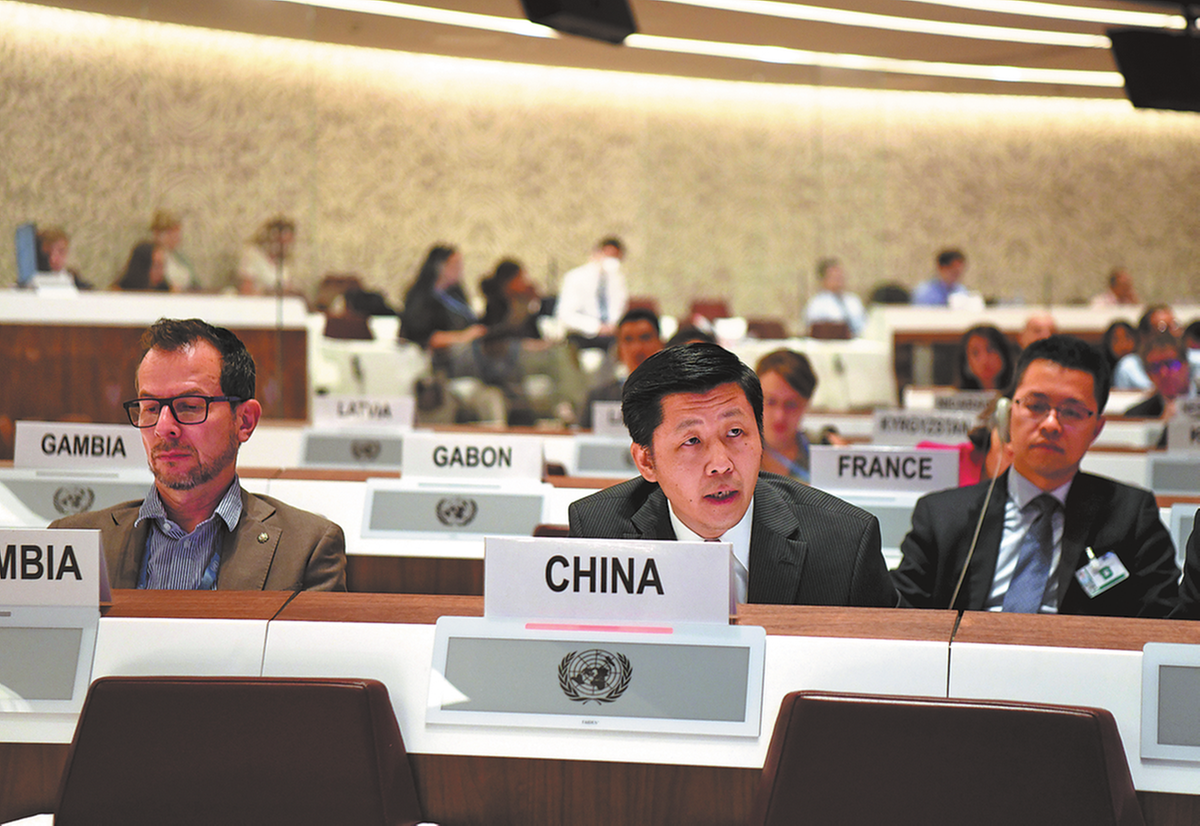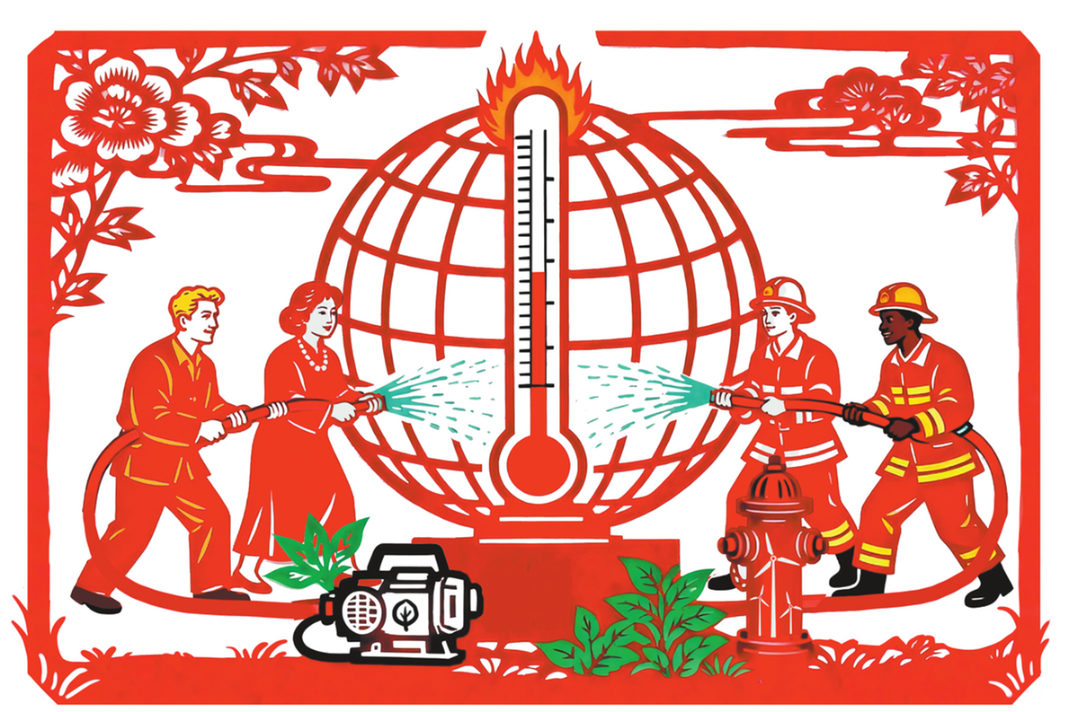China's Arms Control, Disarmament, and Nonproliferation in the New Era
The State Council Information Office of the People's Republic of China November 2025


Contents
Preface
I. Grim Realities: International Security and Arms Control
II. Position and Policies: China's Arms Control in the New Era
III. Playing a Constructive Role in International Arms Control
IV. Leading International Security Governance in Emerging Fields
V. Strengthening International Cooperation on Nonproliferation and Peaceful Uses of Science and Technology
Conclusion
Annex I: List of Arms Control, Disarmament, and Nonproliferation Treaties That China Has Joined
Annex II: China's Laws and Regulations Related to Nonproliferation and Export Controls
Preface
Peace and development are eternal themes of human society. Peace needs to be fought for and be upheld.
Arms control, disarmament, and nonproliferation embody humanity's aspiration to turn swords into plowshares and lay down their weapons. They represent important missions of mitigating the risk of war, addressing the security deficit, and promoting global peace. Together, these efforts are vital to global strategic security and the shared wellbeing of humanity, and have gradually become a common expectation of the international community.
The Chinese nation has always cherished peace and harmony among nations, upheld justice, and opposed abuse of the weak by the strong and excessive use of force. Since the founding of the People's Republic of China (PRC) in 1949, it has pursued a path of peaceful development and a national defense policy that is defensive in nature, and firmly opposed all forms of hegemony, aggression, expansion, and arms race. After the restoration of its lawful seat in the United Nations (UN) in 1971, China has actively participated in multilateral arms control and made unremitting efforts to safeguard international peace and security.
In the new era, guided by Xi Jinping Thought on Socialism with Chinese Characteristics for a New Era, China is committed to advancing Chinese modernization, puts into action the Global Development Initiative, Global Security Initiative, Global Civilization Initiative, and Global Governance Initiative, and works to build a community with a shared future for humanity in response to the shared aspirations of the international community. It plays a constructive role in international arms control, disarmament, and nonproliferation, actively offers its initiatives and solutions, and is committed to improving the international security environment, increasing international security cooperation, addressing global security challenges, and strengthening global security governance. China has been and will always be a builder of world peace, a contributor to global development, and a defender of the international order.
The year 2025 marks the 80th anniversary of the victory of the Chinese People's War of Resistance Against Japanese Aggression and the World Anti-Fascist War. It is also the 80th anniversary of the founding of the UN. Peace remains fragile while wars persist, regional conflicts and turmoil are becoming more frequent, and the international arms race continues to escalate. Today, humanity again has to choose between peace and war, dialogue and confrontation, win-win cooperation and zero-sum game. It once again finds itself at a historic crossroads. As such, there is an urgent need to reinvigorate multilateral arms control and consolidate the foundation for peaceful development.
The Chinese government is publishing this white paper to comprehensively present China's policies and practices on arms control, disarmament, and nonproliferation, and its position on security governance in emerging fields such as outer space, cyberspace, and artificial intelligence (AI), to restate its commitment to safeguarding world peace and security, and to call on countries around the world to work together for international arms control.
I. Grim Realities: International Security and Arms Control
In today's world, the international strategic landscape is evolving at an accelerating pace, the global balance of power is shifting towards greater equilibrium, multilateralism is valued, and factors safeguarding world peace and security are on the rise. At the same time, the global security situation is complicated and menacing: Hegemonism, power politics, and unilateralism pose a severe threat to the post-war international order; geopolitical rivalry is intensifying; regional conflicts and unrest are becoming more frequent; and the arms race is escalating. Concurrently, issues related to international arms control, disarmament, and nonproliferation are becoming more complex and multidimensional. Overall, the situation presents both opportunities and challenges.
Competition between major countries is impacting regional peace and security. A certain country seeks absolute strategic superiority by constantly expanding its armaments, strengthening combat readiness, and provoking bloc confrontation. This has led to escalated international and regional arms race, outbreaks of regional conflicts at multiple spots, and repeated new highs in global military expenditures. In particular, this country has strengthened military alliances in the Asia-Pacific region, exercised extended deterrence, and forward-deployed ground-based intermediate-range missiles, provoking tension and opposition and severely undermining the security and interests of countries in the region.
Global strategic stability faces severe threats. This certain country keeps adjusting its nuclear policies, stubbornly maintaining a massive nuclear weapons stockpile while further reinforcing its nuclear deterrence and war-fighting capabilities. This has resulted in rising risks of global nuclear conflicts. Meanwhile, missile defense technologies are advancing rapidly, and military applications in emerging fields such as outer space, cyberspace, and AI are developing at a fast pace. All these factors are reshaping the traditional strategic offense-defense dynamic, posing new challenges to global strategic stability.
The international arms control, disarmament, and nonproliferation regimes are eroding. This certain country has undermined the international arms control regime by withdrawing from relevant international agreements. The international nonproliferation regime has suffered from pragmatism and double standards. A handful of countries, driven by a "small yard with high fences" mentality, pursue decoupling, sever industrial and supply chains, and restrict developing countries' peaceful use of science and technology in the name of nonproliferation.
Security risks and challenges in emerging fields are becoming more prominent. With the rapid development of emerging technologies, uncontrolled use of technologies, data theft, technological crimes, and violation of ethics are on the rise. These issues highlight the absence of international rules and the lag in governance systems. The militarization trend in emerging fields is accelerating. This is destabilizing traditional principles of warfare and war ethics and posing new challenges to global security.
Rising calls for stronger arms control are in essence calls for peace and justice. The Global South is achieving greater autonomy in addressing global security and development affairs. The drive to promote a fair, just and reasonable international arms control regime and to safeguard world peace and stability is growing stronger. China is committed to upholding the international arms control regime with the UN at its core. It actively promotes sound global security governance and serves as a key promoter of international arms control.


































